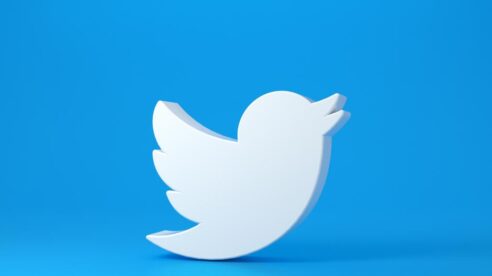Written By Joe Panichelli, D+P Intern
As our digital marketing culture promotes the personification of major corporate companies, they often take on a mind of their own.
While television commercials, billboard advertisements or product placements in film have traditionally been principle forms of marketing, the attention of and engagement with customers now takes place more often behind Twitter handles and hashtags.
Taking the comedic route has always been an option through these previously mentioned forms of media, but it seems as though social networks, specifically Twitter, enable and encourage playful behavior or jocular jabs at users more than ever. This may be due to its earlier 140-character limit, forcing users to be short and funny from the start.
So how do these companies toe the line between being relatable and funny, while remaining professional and reputable?
All these definitions are changing so it depends what you view as professional in our current online culture, I suppose. Are these companies ahead of the curve in researching and adopting conversational ques and quick paths to becoming viral? Or are they risking their reputation in attempts to foster clicks and name recognition?
Why the beef?
Take Wendy’s for example.
In this case, everyone knows what Wendy’s is, it’s a massive fast food brand. To that, I would argue that they have had the most engagement, most popularity, and most “success” taking advantage of contemporary social media practice.
Don’t slide into DMs when you can slide more sandwiches into your stomach. Choose a S’Awesome Bacon Chicken, Barbecue Chicken or Avocado BLT Chicken today –the world is yours. pic.twitter.com/L5l8w2sQGJ
— Wendy’s (@Wendys) June 12, 2019
One of the Wendy’s Twitter campaign’s was featured on Ellen, their beef (pun intended) with McDonalds’ went viral, and they’ve had countless zingers and comebacks that have cemented not only their position on Twitter, but have opened the floodgates for other companies to take similar action.
buddy I’m not a restaurant https://t.co/LlSHCsk816
— Steak-umm (@steak_umm) June 14, 2019
A list of companies from Charmin to Steak-Um, and many more have used extreme, confrontational, or often crude taglines and replies.
The Art of Absurdisms
As traditional media may seem outdated for those of us who consume mass amounts of internet content throughout the day, I would still understand how some would find issues with the way Wendy’s, and other corporations are going about its business.
While using humor or absurdism in a business setting could take precedent on social media, there is something to be said about remaining respectful to customers or peers. And while Twitter accounts are most likely run by groups of millennial employees and not top-level executives, that doesn’t exactly differentiate from the actions of the accounts to the brand itself.
Black Friday **** Need copy and link****
— McDonald’s Corporation (@McDonaldsCorp) November 24, 2017
I’d say, however, that the times have changed, and being funny and capturing engagement remains the top requirement for social media strategists.
In a platform with no hierarchical structure, in which one scroll of the finger portrays posts from Burger King, your best friend, and The POTUS, the brain behind the keyboard will need to find an angle to make them stick out.
Let Social Be Social
For me, I personally don’t see an issue with this type of marketing, but that is most likely due to the fact that most of my Twitter timeline contains similar silly and humor-based content, and I would guess the same to be true for many others.
I have become accustomed to the behavior of trolls and the application of memes to topics or conversations that previously were taken seriously and professionally, and now become opportunities to make a quick joke for five minutes of fame.
It is as though for the first time in our society, brands have followed suit of the users and potential customers, and operate in the first person with, typically, a singular perspective.


